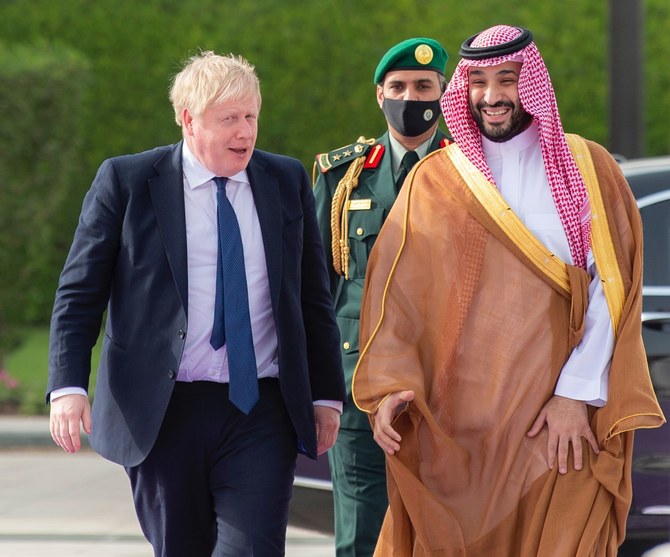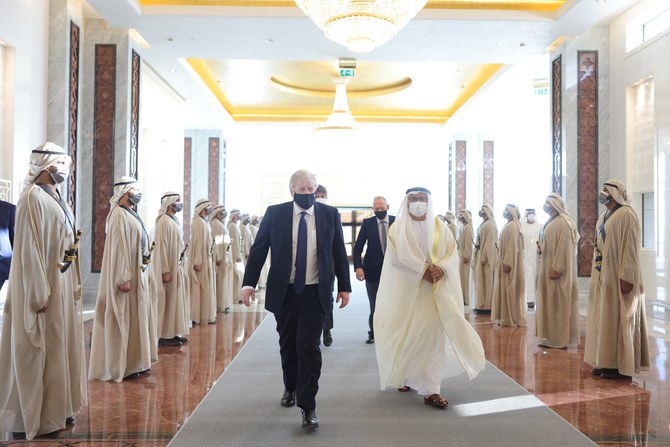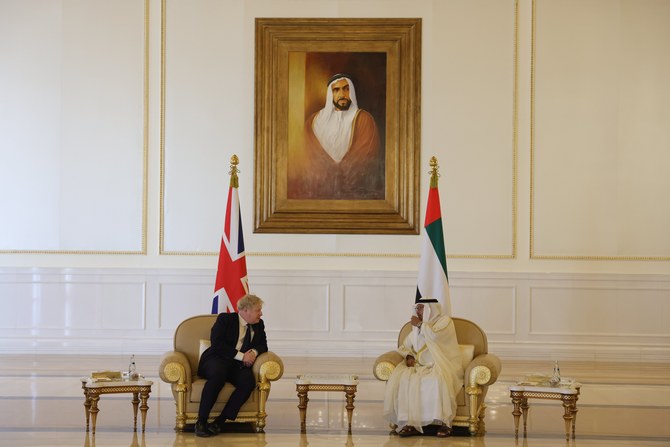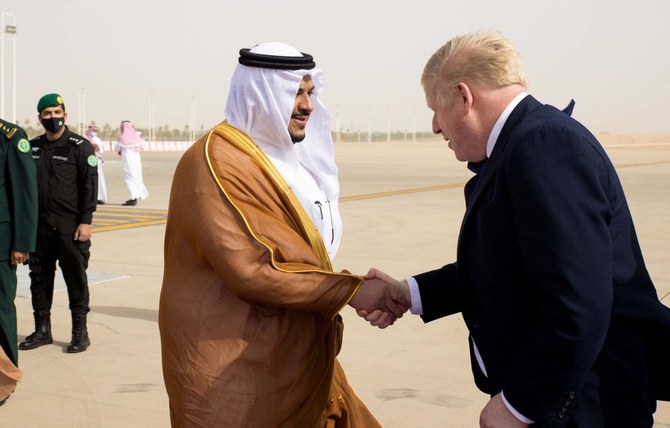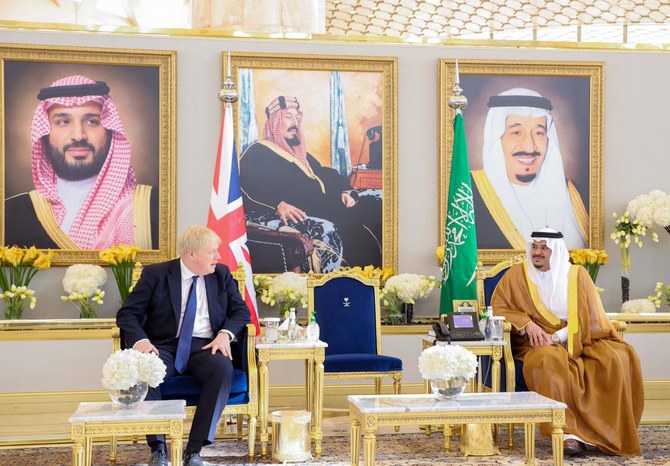RIYADH: Saudi Crown Prince Mohammed bin Salman met British Prime Minister Boris Johnson in Riyadh on Wednesday, Saudi Press Agency reported.
Saudi Arabia and the United Kingdom signed a memorandum of understanding to establish a strategic partnership council.

Saudi Arabia’s Crown Prince Mohammed bin Salman and British PM Boris Johnson attend a Saudi-UK Strategic Partnership Council meeting. (SPA)
The two leaders discussed bilateral cooperation in various fields and opportunities to develop it.
They also discussed regional and international issues of common interest including the latest developments in Ukraine.
Earlier, Johnson met the Crown Prince of Abu Dhabi, Sheikh Mohamed bin Zayed Al-Nayhan, in Abu Dhabi.
The leaders discussed opportunities to increase collaboration between the UK and UAE on energy security, green technology, and trade.
Johnson is on a visit to the Gulf as part of efforts to secure more oil supplies and increase pressure on President Vladimir Putin over Russia's invasion of Ukraine.
He is seeking greater investments in the UK’s renewable energy transition and ways to secure more oil to lessen British dependence on Russian energy supplies.
Russian President Vladmir Putin’s decision to invade Ukraine is “causing global uncertainty and a spike in the price of oil,” Johnson told reporters in Abu Dhabi ahead of his meeting with Crown Prince Mohammed bin Zayed.
“Everybody can see the effect of the increase in gas prices that’s coming through,” he added.
Because of Europe’s reliance on Russian oil and gas, Putin has been “been able to blackmail the West to hold Western economies to ransom,” he said.
“We need independence,” Johnson added.



